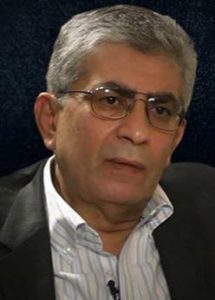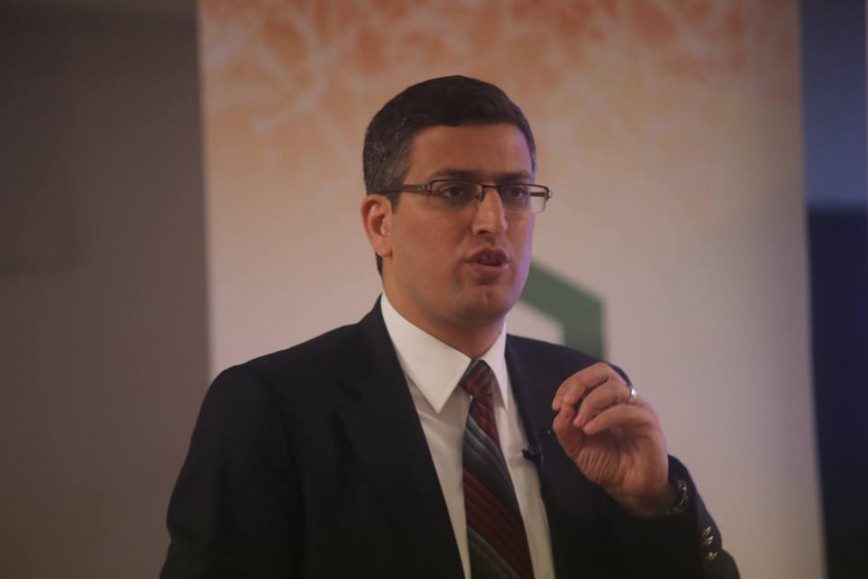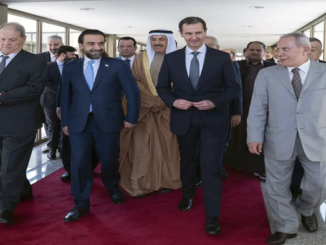
 By: Dr. Basheer Mousa Nafi*
By: Dr. Basheer Mousa Nafi*
As usual, a number of Turkish journalists have accompanied their president during his visit to Pakistan and Uzbekistan. During the return flight on November 19, President Recep Tayyip Erdogan told the media men around him in the plane Hall that the Turkish people should deal with the issue of the EU membership comfortably, and that the issue of joining the European Union is not the end of the world. Erdogan did not hesitate to reveal his intentions, noting that Turkey has requested a membership of the Shanghai Cooperation Organization, which has so far five nations, led by China and Russia. The comments came a few days after an angry speech, in which Erdogan attacked the president of the European Parliament, Martin Schulz, and called for a popular contract to the process of joining the European Union, which has been continuing with no clear prospect for decades.
In fact, there is a growing tension in Turkey’s relation with the European Union, which has become much acute since the failed coup attempt on last July 15. Turkey submitted an application to join the European Common Market (the parent organization of the European Union) in the sixties of the last century. In 1999, the Union approved the Turkish demand, but the process of negotiation on membership started only in 2005.
Although a number of negotiating chapters have already been opened, the process is crawling slowly. Given that some states, in the meantime, in Central and Eastern Europe –that are less advanced economically and democratically, and have weaker institutions –have acquired the right to EU membership, it is clear that Europe does not want to grant Turkey the same right. In fact, the European attitude towards Turkey does not need much intelligence to detect. A few years ago, former French President Nicolas Sarkozy did not hide his feelings when he said that Europe would not accept the accession of a State of seventy million Muslims. The German Chancellor, Angela Merkel, regards that the best European policy towards Turkey is the policy of “no membership and no cutting for negotiations on its EU accession”, that is, to prolong the negotiation process endlessly, and maintain a permanent link of Turkey to the EU at the same time. “Turkey is so important that we must not cut Europe’s links with it,” said Merkel.
Today, Ankara does not hide its anger at the lack of the serious European solidarity with the Turkish people when the country was hit by a blatant and brutal coup attempt through a secret organization within the state and the army, while the organization’s leader lives in the United States, and a number of its prominent leaders and financiers walk around freely in the European Union. Moreover, Europe, which had declared the PKK a terrorist organization, is turning a blind eye on the organizational, media, and political activities of the terrorist organization’s cadres on the European territory. “Europe plays a role of sponsoring terrorism,” said Erdogan a few weeks ago. In contrast, the European Parliament condemns the Turkish government’s process of “cleansing” the state institutions of Fethullah Gulen’s Terrorist Organization (FETO), which is accused of the July 15 failed coup attempt. The EU also threatens to freeze Turkey’s EU accession negotiations. (The European Parliament has already voted for freezing Turkey’s EU membership talks). Erdogan has raised the idea of holding a referendum on Turkey’s EU membership, which came, in fact, in response to the European Parliament president’s threats of imposing economic sanctions on Turkey if it did not stop the procedures related to the process of detecting Gulen’s FETO in the state institutions and the media circles, which Ankara sees as a paternalistic and insulting European treatment with Turkey and its people.
Coping with this tension in Turkey’s relations with the European Union, there is a climate that is closer to a loss of confidence in the Turkish-American relations. It could be argued that the ties of the two countries have not known a moment that is worse than this since the well-known 1965 message of Johnson, in which the US president warned Ankara of interfering in the conflict raging, then, between the Greek and the Turkish Cypriots.
On the sixth of this month, November, Gen. Joe Dunford, the head of the US Joint Chiefs of Staff, visited Ankara and held talks with his Turkish counterpart, Gen. Hulusi Acar. The meeting lasted nearly five hours, during which the Americans pledged that the Shiite popular mobilization forces (Hashd Al-Shaabi) would not be allowed to enter the Turkmen-majority city of Tal Afar, in northern Iraq, after its liberation from the ISIS organization (Daesh). The Americans also pledged that the forces of the Syrian Kurdistan Democratic Party (PYD) –known as one of the PKK arms in Syria–would withdraw quickly from the Syrian Manbej city, east of the Euphrates, that the same Kurdish forces will not be allowed to enter the Arab city of Raqqa in the north-eastern Syria –which is still under the control of Daesh– and that the Kurdish role in the liberation of Raqqa would be limited to only isolating the city.
In fact, the US-Turkish differences on Syria and Iraq have been accumulating for more than four years. These differences are not only about the US stance toward the Syrian revolution, but they are also about the US policy in Iraq, where the Americans turn a blind eye on the sectarianism of Baghdad government and its ignoring of the rights of Iraqi Arab Sunnis, as well as the significant role that is being played by the sectarian popular mobilization militias in the Sunni-majority areas. During the meeting of Dunford with his Turkish counterpart, it seemed that the United States did not show great enthusiasm for Turkey’s offer to participate in the liberation of Raqqa, provided that the Kurdistan Democratic Forces should be excluded from the operation altogether. When the Turks asked a US air support for Operation Shield Euphrates, where the units of the Free Syrian Army advance, backed by Turkish forces, toward the Al-Bab City, in an attempt to liberate the northern Syrian strip, west of the Euphrates, from the terrorist forces, the Americans apologized that they did not want to provoke Russia and the Assad regime. Over the following few days, Dunford’s modest pledges soon began to evaporate.
In northern Iraq, there were reports that not only the popular mobilization forces which are moving towards Tal Afar, but also the Syrian Kurdish units of the Kurdistan Democratic Party (PYD), which have been occupying Sinjar since its liberation from “Daesh” in November 2015. In northern Syria, despite the PYD’s announcement of beginning to withdraw its units from Manbej and return to the east of the Euphrates, it was reported that these units were going, instead, toward the Al-Bab city, in an attempt to pre-empt the FSA progress toward the city. Because this is not the first time that the Americans have pledged that the PYD units would leave Manbej, it is no longer possible to talk about a lot of remaining trust between Ankara and Washington.
Those who read the US-Turkish relations with some of the “good will”, they say that the US policy in northern Iraq and Syria aims to involve Turkey in the ongoing war in the two neighboring countries. But those who maintain a considerable amount of “bad will”, argue that the Obama administration’s policy, even in its last days, is based on the presence of forces that are hostile to Turkey in the Syrian and Iraqi sides of the border, in pursuit of isolating Turkey from its Arab neighborhood completely.
The Turkish Republic was born, as it is known, after an exorbitant war of independence (1919 1922) that represented the first national liberation movement in the twentieth century from the foreign Western control. But the irony is that those who led the war of independence and declared the Turkish Republic on the ruins of the Ottoman Empire –they, too, were fond of the West, and believed that modern Turkey will not progress without moving on the footsteps of the Western civilization. During nearly one hundred years, the Republic of Turkey has maintained close and institutional relations with the US and Western Europe. In fact, this is a moment of unprecedented Turkish doubts in the country’s relations with the West. Accordingly, this relation will, perhaps, need legendary effort to save it from further deterioration.
*Dr. Basheer Nafi is a writer, a historian, and a researcher in modern history, especially the Middle East and the Islamic History.
(Published in Al-Quds Al-Arabi, on Thursday, Nov. 24, 2016, and translated for MEO)



